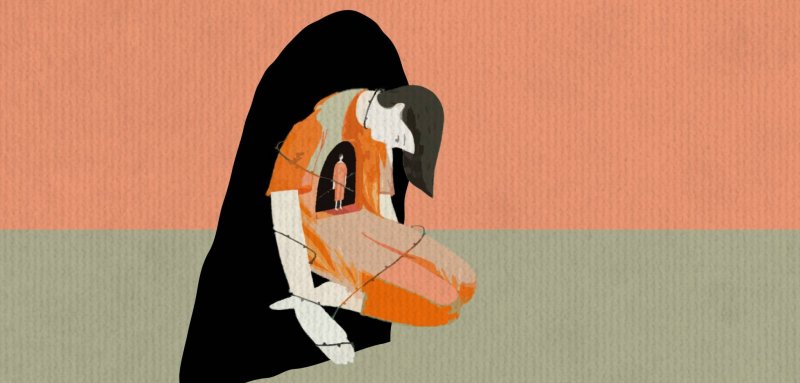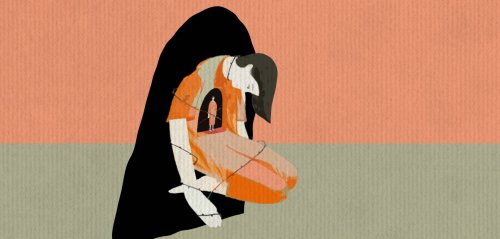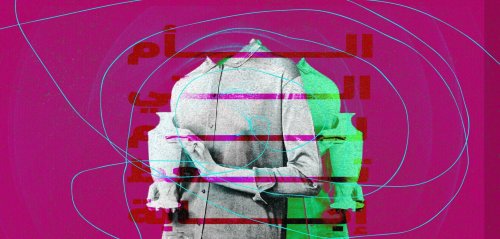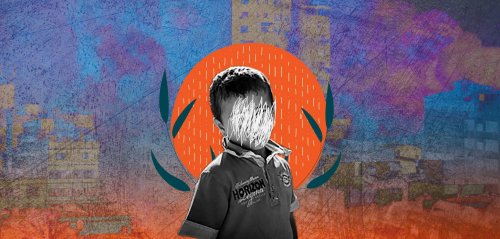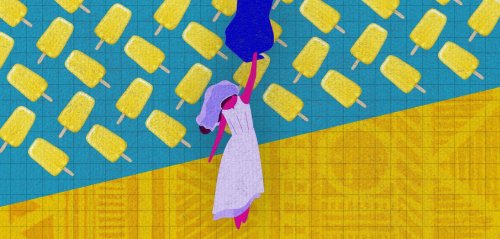It's not easy to be a victim of abuse and decide that this harm will end with you, and not pass it on to others. There is a woman who was abused by her father, who in turn was abused by one of his parents, but she decided to not be another link in the chain and not continue the cycle and harm her own children. She sought psychological treatment, therapy, medication, and all available means to control her behavior with them. Another hero had decided to protect his brother from the domestic violence he suffered from. There are many unsung and invisible heroes who have decided to do what they can to reduce the number of victims of violence and harm in the world, and to end the cycle of violence and aggression with them.
"My biggest nightmare in life is that my daughter will start to feel some degree of fear or hatred towards me, just like I felt towards my abusive father"
"I don't want to be a copy of my father"
Noha Hamad, 32, from Giza, says "All I know is that I don't want to be a copy of my father. My father was violent and subjected me to psychological and physical abuse. He once hit me hard until I bled. I hated my life and I hated him. I don't remember him ever being a caring or loving father. I don't know if it was a conscious decision on my part, but I found myself striving with all my might not to resemble him in anything. When I noticed some anger in my behavior towards my daughter, I turned to psychological help to solve this problem in the short term with medication, and in the long term with therapy sessions and a change in my lifestyle. And I think I succeeded to some extent in this goal."
Noha sees that "her biggest nightmare in life" is that her daughter would start to feel any degree of fear and hatred towards her, just as she felt towards her father, "I try to create a loving and compassionate version of myself for the sake of my daughter, and not leave her with memories of a distorted and abusive childhood like mine."
"As soon as I got my own place, I took my little brother away from my parents, who accepted immediately, especially since they didn't want to take part in his school expenses. They stipulated that I'd take care of all his expenses, and I agreed right away"
The story of Ahmed Muhanna, the financial director of a technology company in Cairo, is not much different than that of Noha, except he suffered abuse from both parents. He said, "I had a younger brother, and I couldn't protect him from our parents. The only way I could protect him was by taking the biggest share of the abuse that our father and mother inflicted."
For Ahmed, achieving financial independence was his first step towards freeing himself from his parents' abuse and protecting his younger brother. He said, "As soon as I got my own place, I took my brother away from my father and mother while he was still in middle school. It wasn't really a struggle or difficult in any way. It was like a weight was lifted off their chests. They accepted my offer immediately, especially since they did not want to take part in his expenses in high school or university. The first thing they stipulated was that I would take care of all his expenses, and I agreed to it right away."
Ahmed now makes sure to regularly visit his therapist, who encouraged him years ago to take full responsibility for his brother as a means of psychological and mental balance and to stop the cycle of harm from hurting his brother as it had hurt him.
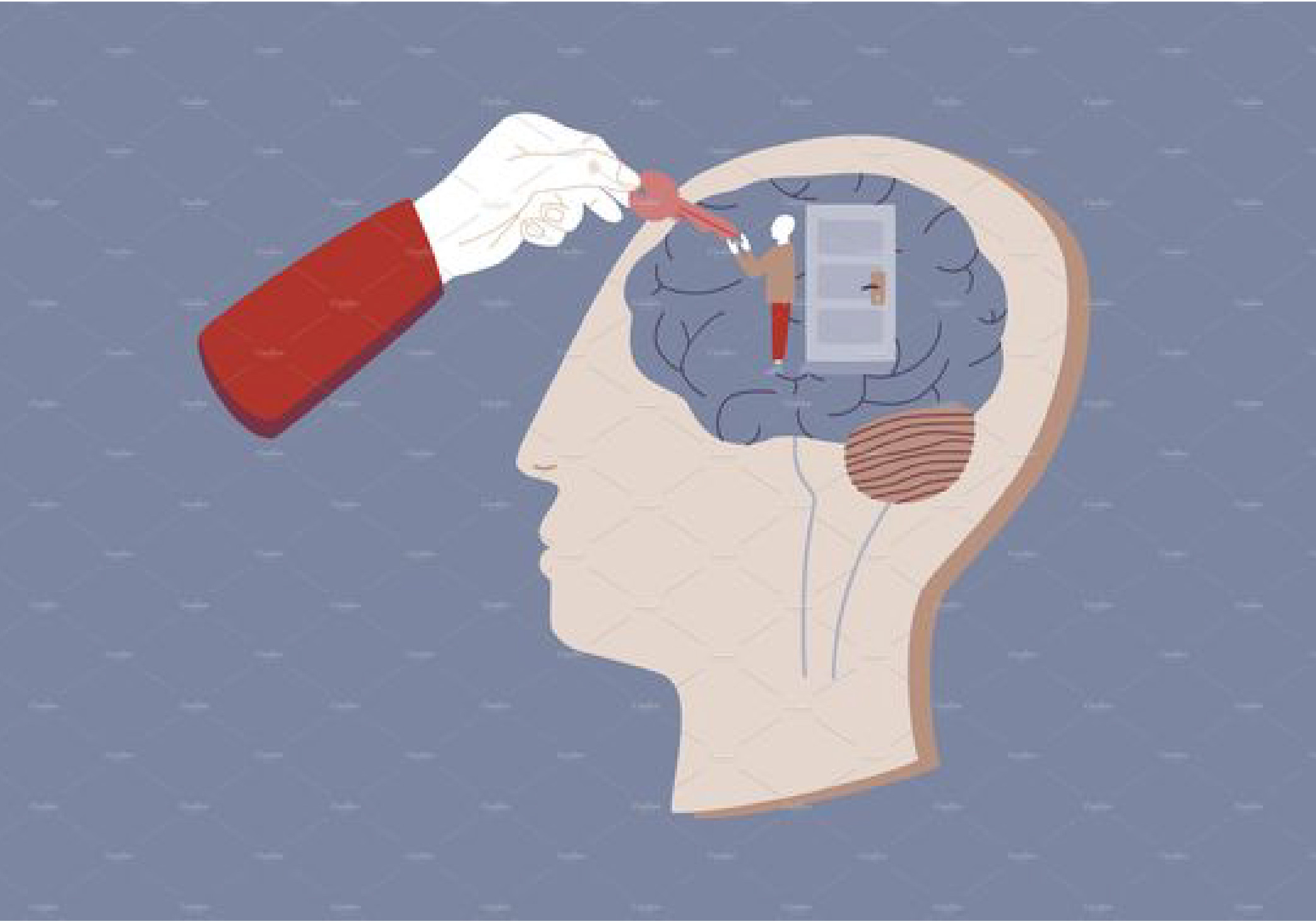
I swore to be supportive of my team
As for Maha Abdeen, a telecommunications engineer from Alexandria, she tells Raseef22 that ever since she started working, her bad luck led her to work under managers and supervisors who subjected her to different forms of emotional, professional, and financial abuse. She says, "Most were skilled at breaking morale and diminishing the efforts of the team. I remember one manager who would get very angry if he felt we had a private or social life outside of work. So I swore that if I ever had the opportunity and was responsible for a team, I would not be like those who came before me. Instead, I would do everything in my power to help and work to boost their morale, which is what I'm doing with my work team now."
The patterns of violence against children that are currently prevalent in Egyptian society cannot be attributed solely to genetic inheritance, but rather are violent behaviors largely driven by the will of their perpetrators
Violence is hereditary
Psychologist Nihal Zain tells Raseef22 that the scientific evidence for the inheritance of violence is strong, as those who are subjected to violence and abuse for long periods of time at a young age may find it difficult to imagine alternative ways of managing human relationships. Violence becomes all they know.
Zain points to a series of scientific studies conducted at various academic research centers on "hereditary violent genes", some of which concluded that isolated groups, especially in developing countries, could explain their violent behavior towards their children as being passed down from abusive fathers, even though the resulting violence from that genetic inheritance is rarely extreme enough to result in the murder of children or the exercise of violence that leads to suicide. This means that the patterns of violence against children that are currently prevalent in Egyptian society cannot be attributed solely to genetic inheritance, but rather are violent behaviors largely driven by the will of their perpetrators.
In the book "Genetic Basis of Violence and Aggression: Part Two - The Role of Genetics", issued by the Iraqi Center for Cancer and Medical Genetics Research, Ali Mohammed Al-Hussein Al-Diab, Saad Ma'an Ibrahim, and Nahy Youssef Yassin discussed the role of genetic factors in cells and their relationship to violence, aggression, and other related behaviors. They published a summary table of the results of the study, showing the responsibility of each gene for specific behaviors, such as violence, aggression, suicidal tendencies, rape, and bipolar depression.
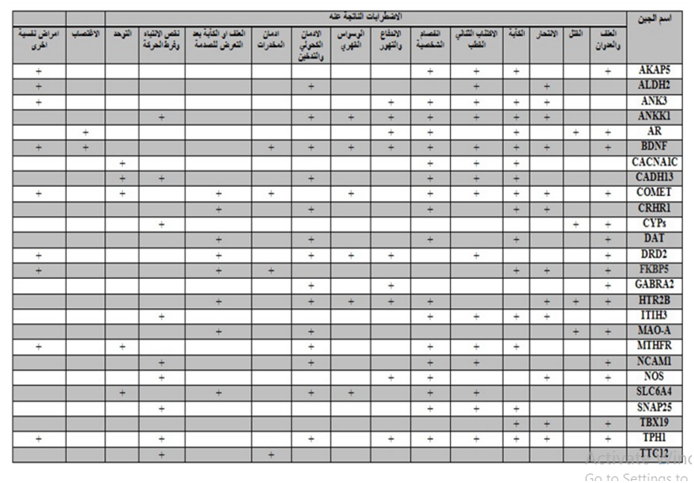
Psychiatrist Nihal Zain says, "Medically, we inherit violence from our parents, but it is not just hereditary or genetic. Rather, the surrounding environment can also cause a person to develop violent and aggressive behavior, in what is called intergenerational violence (when violence is passed from parent to child in a vicious cycle of harm and abuse). A child who grows up in a dysfunctional and abusive family, experiencing psychological, physical, or sexual violence, is at risk of developing violent behaviors."
However, according to the doctor, there is a chance for an individual who has been exposed to abuse to reject these behaviors and resist them. "There are many therapeutic schools to correct and treat these behaviors and manage anger. But this opportunity, says Zain, requires several components, including awareness, perception, and a desire to break this cycle of violence and harm. This awareness is what motivates a person to receive behavioral and psychological treatment, and this is where the essential difference lies. Not everyone who has experienced violence has this type of awareness and desire to break the cycle of violence and avoid repeating the violence that was inflicted upon them by their family, and this is what can be called 'insight'."
Zain concludes, "Finally, psychological awareness and education come hand in hand and to discover suffering, which may push people towards positive change, especially if this suffering leads the person to lose their friends or job or face significant legal problems. The inability to manage anger can lead a person into massive crises. It is also very important to have a supportive party that provides a psychologically safe space, such as a mother who decides to leave an abusive relationship to protect her children and work on their psychological treatment with specialists, or friends or some relatives. This party can be a lifeboat at some point."
Raseef22 is a not for profit entity. Our focus is on quality journalism. Every contribution to the NasRaseef membership goes directly towards journalism production. We stand independent, not accepting corporate sponsorships, sponsored content or political funding.
Support our mission to keep Raseef22 available to all readers by clicking here!
Interested in writing with us? Check our pitch process here!
